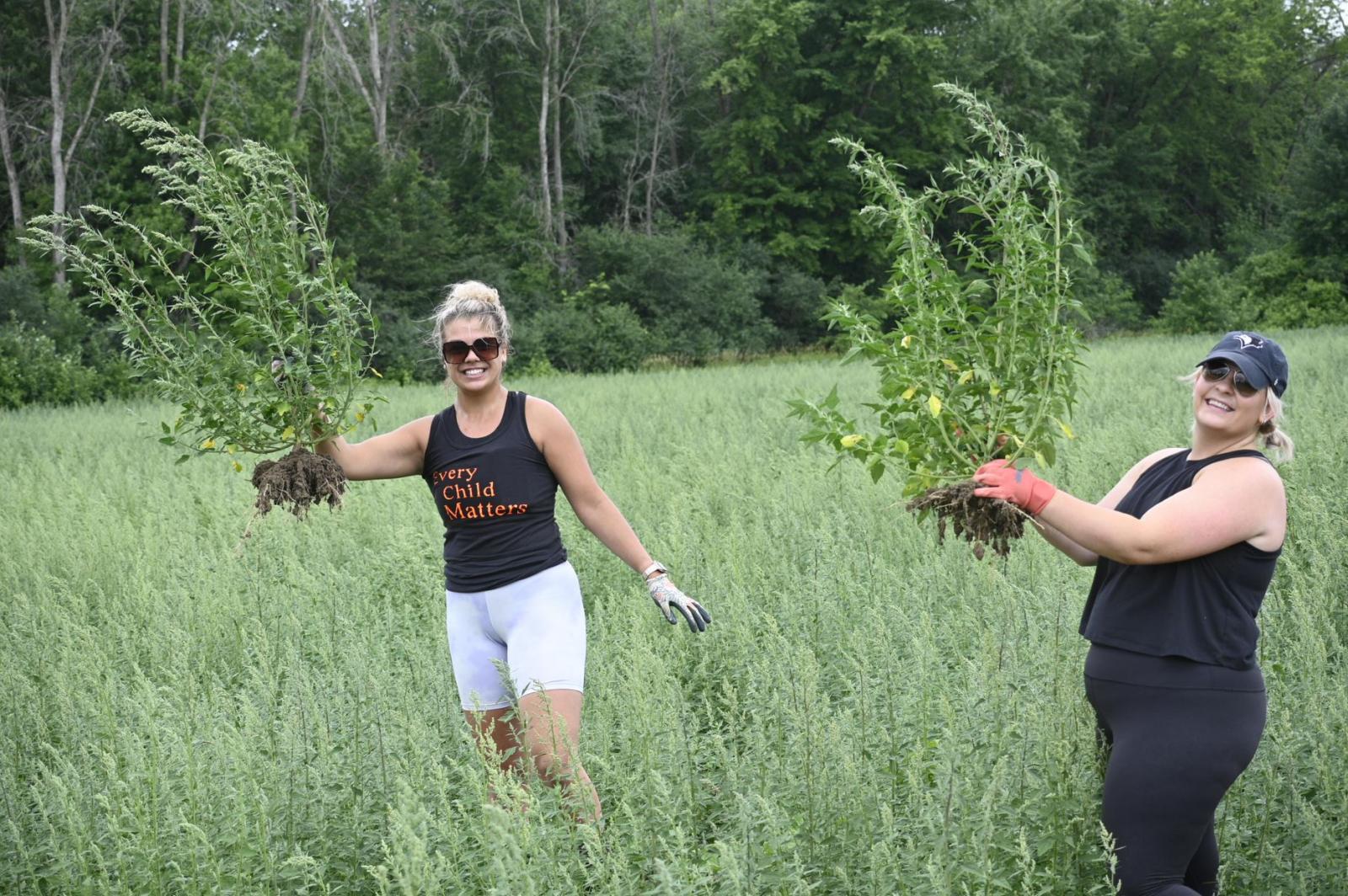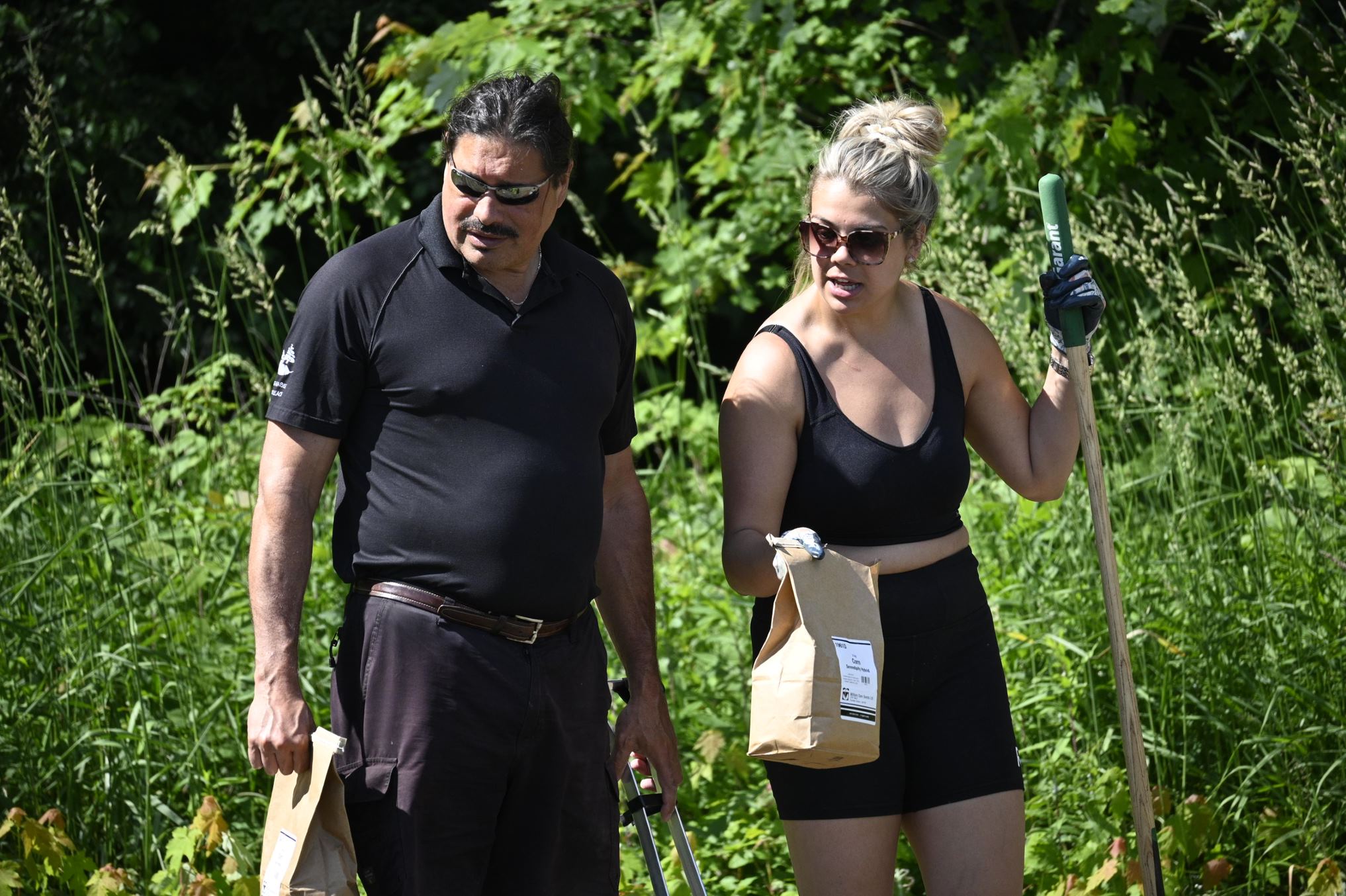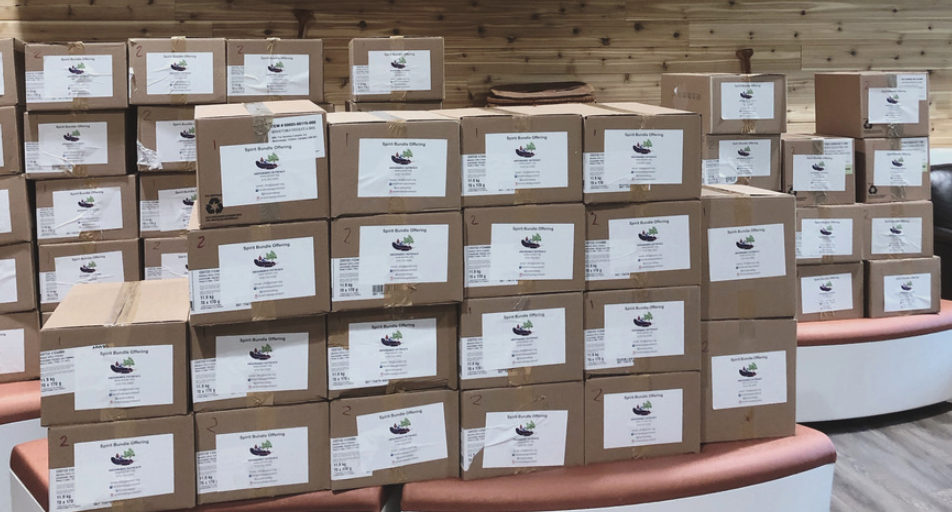
Anishnabeg Outreach creates Reconciliation Garden
Journalism Intern, Landscape Ontario
Anishnabeg Outreach is planting the seeds of reconciliation in Waterloo Region.
“This 10-acre [Reconciliation Garden] is home to fresh produce, the four sacred medicines (sage, sweetgrass, tobacco and cedar), large pumpkins, and ancient Indigenous squash that have not been grown for hundreds of years; all of which will be provided to First Nations, Inuit and Metis community members who access Anishnabeg Outreach’s Spirit Bundle Offering Program,” the organization’s digital communications, social media and community specialist Shannon Blackmore said.
Anishnabeg Outreach (AO) a non-profit organization that provides Indigenous peoples with access to culturally appropriate services and strives to support individuals with direction and assistance to overcome barriers.
Launched in 2020, the garden is located on a scenic property in Breslau, Ont. that was provided by the Diocese of Hamilton, which is affiliated with St. Mary’s Roman Catholic Church.
AO CEO Stephen Jackson explained why the garden is so important to the organization and the wider community.
“Our goal is to give people an easy way to be a part of the reconciliation. It’s all about building relationships and partnerships. Reconciliation isn’t something Indigenous peoples need to do, it’s something others need to act on. We want to help provide that opportunity.”

One of the most special crops in the garden is squash that is being grown from seeds that were donated by the City of Waterloo Museum.
Jackson explained that the squash seeds “were from hundreds of years ago, but [we’ve] managed to re-propagate them. They haven't seen the light of day for hundreds of years, but ancient, Indigenous people used to grow them.”
The squash plants take up a large portion of the garden, spreading around four to five acres and will become a food source for the community in the fall. Another large portion of the garden contains pumpkins that will mostly be used for charity events.
“People will be able to make a donation to our organization, to help us with programming,” Jackson explained. “Once you make a donation you can pick a Halloween pumpkin from our field. And we're also growing giant pumpkins which are the size of small Volkswagens.”
Spirit bundles
Charity events enable the organization to grow, and serve to bring the community together. The produce in the garden will also contribute to the spirit bundles offered by the organization.
The bundles include food and other items like clothing and school supplies, and support over 1,500 First Nations, Inuit and Metis community members in Kitchener, Waterloo, Cambridge and Guelph.
Jackson explained that the spirit bundle program has been a huge success. “We donated about a million dollars worth of supplies to families that were in need last year alone.”

AO provides essential items in "Spirit Bundles" to First Nation, Metis and Inuit people in Kitchener, Waterloo, Cambridge and Guelph.
Goals for the future
Jackson hopes AO will be able to build a greenhouse to provide produce to the community year round.
Overall, through all of these projects AO offers, the main goal is to offer opportunities for reconciliation.
“We believe that if you give back language, give back culture, provide opportunities for healing, provide opportunities for employment, and rebuild families and reconnect communities — that Indigenous people are whole, at that point. In other words, they're fully capable of being a talent pool for any job out there.”
However, Jackson explained how reconciliation is a two-way street where both Indigenous and non-Indigenous people need to understand the barriers in place. AO offers workshops and information sessions for this reason.
“It’s also about small businesses and large businesses understanding their role in the need to support and embrace an Indigenous talent pool,” Jackson said. “Because even if you build the pool where Indigenous people feel whole, it wouldn't matter if the companies don't want to work with the pool.”
Jackson said that this is why initiatives like the garden are important for creating these relationships, since it gives people opportunities to connect.
“Reconciliation is really about partnership and relationship. You can't do it for Indigenous people. You have to work together on it.”
Support the Reconciliation Garden
Starting in August, Anishnabeg Outreach is seeking volunteers to assist in the maintenance and harvesting of the garden. Volunteer garden parties will take place each Friday from 9 a.m. to 12 p.m. If you are interested in volunteering, please email Shannon Blackmore at shannon@aocan.org.
Learn more about Anishnabeg Outreach at aocan.org.
